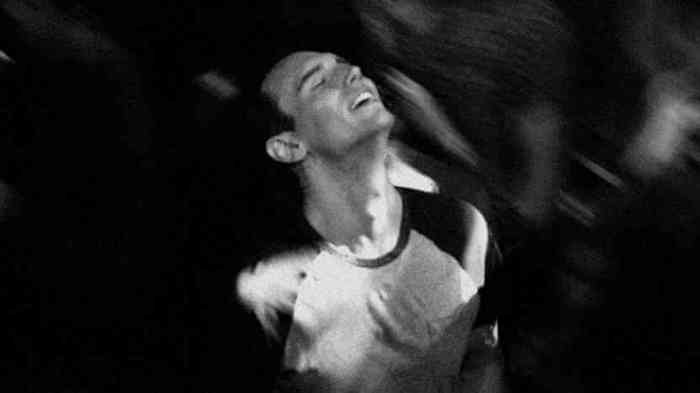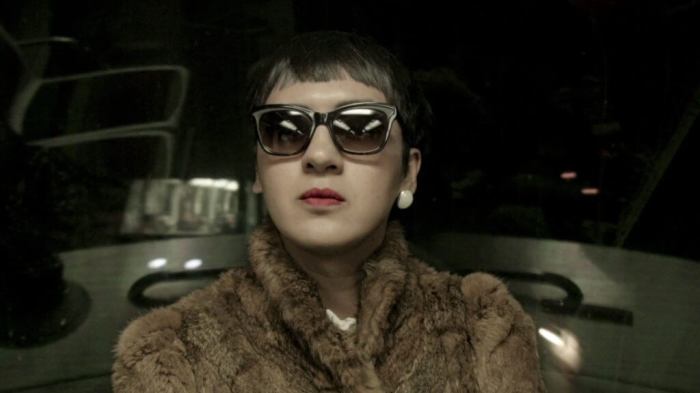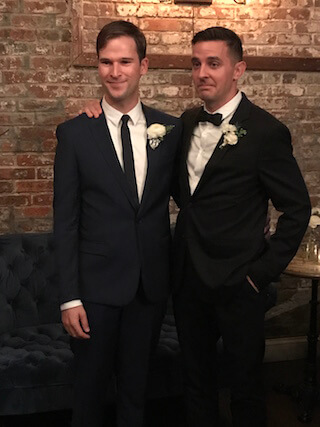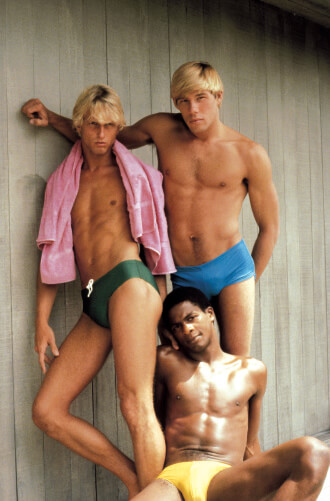Wakefield Poole in Jim Tushinski’s “I Always Said Yes.” | NEWFEST
NewFest, the New York LGBT Film Festival, runs this weekend and through Tuesday, and three of its more provocative films zero in on gay men’s sexuality and the sex they have.
“I Always Said Yes” (July 28, 9 p.m.) is Jim Tushinski’s affectionate portrait of gay erotic art filmmaker Wakefield Poole. A terrific queer history, this documentary recounts Poole’s life and work —from his experiences as a dancer in the Ballet Russes to his success making “artistic, erotic — not dirty” films, which include his blockbuster successes “Boys in the Sand” and “Bijou,” as well as the fascinating flop “Bible!”
Poole recently chatted with Gay City News about how his background helped him make adult films.
NewFest celebrates the unabashed release of queer sex
“Dance and theater were definitely an influence,” he explained. “It made me understand you had to have tension, keep it visually interesting, and give the audience a chance to add something to it, instead of just being an voyeur.”
The filmmaker, in his view, has that same opportunity.
“I found there was power in the camera because I could become a participant in the sex by what I chose to show — almost like a three-way, though my part was not physical, but totally mental. It was incredible feeling the power I had affecting the action — zooming in, doing a close up, etcetera.”
Discussing his most famous film, “Boys in the Sand,” Poole waxed nostalgically about its lead, the late Casey Donovan, aka Cal Culver.
“What is shocking about Cal is that he’s so American boy naïve, but has no boundaries,” he recalled. “For ‘Boys in the Sand,’ Cal said he’d do anything I want. He wanted to be part of it. He became a superstar. He was very sensitive and compassionate. He knew who he was.”
Poole also knew himself well. Asked about putting his own name on gay adult films in an era when making and distributing pornography were in some places illegal, he said, “It never entered my mind not to put my name on it. It was right after Stonewall. I was never in the closet. I was out at nine. The whole point of making the movie was to make people proud of what they were seeing and what they were doing in bed and not have guilt or feel bad about it. If I didn’t put my name on it, it would defeat the purpose.”
Two men at London’s Hoist in Charles Lum and Todd Verow’s “Age of Consent.” | NEWFEST
Another strong documentary having its New York premiere at NewFest is Charles Lum and Todd Verow’s “Age of Consent” (July 26, 11:30 p.m.), about the London all-male fetish club the Hoist, which opened in 1996 and is still around today. Shot largely on location, the film presents a lively behind-the-scenes tour of the celebrated establishment — its bar and its bars (on the iron cages), along with the backrooms, bathrooms, slings, and, of course, the hoist itself.
Co-director Lum had been to the club, and both he and Verow were approached by the owner to make a film about it. Verow only got to discover the club when they went to film it.
In a recent chat, he recalled enthusiastically, “We wanted to see all the nooks and crannies. They also gave us permission to film while they were open. We had to wear leather, or on naked nights we had to walk around nude with a camera.”
Slyly, Verow added, “It was kind of fun actually.”
“Age of Consent” features great interviews with the Hoist’s men, from the kinky patrons to the proud employees. John Mitcheson, who cleans the place, is especially ingratiating. From “Age of Consent,” we get an interesting perspective on how a subculture builds and maintains a supportive community.
“What is interesting is that you have to become a part of it,” Verow observed. “It’s being subversive, but within a group.”
One of the film’s best scenes juxtaposes human rights activist Peter Tatchell chronicling Britain’s history of anti-gay discrimination in voiceover as patrons, including porn star Adam Dacre, perform explicit sex acts on screen. The sequence underscores the defiance that a legacy of criminalization created in Britain.
For Verow, this was a particularly significant portion of the documentary.
“It contrasts what’s legal now with the description of the laws against gay people through the ages,” he said. “I was thinking about nature films. You’re distanced from the graphic sex because you’re listening to an almost academic lecture about gay oppression in the UK. I like the idea of watching something and getting caught up in the images and forgetting what the person is saying, or your can listen to the person and pay less attention to what’s onscreen.“
Lum takes particular pride in interview segments that featured Dr. Joseph Sonnabend, who played a pioneering role in the response to AIDS decades ago and now lives in London.
“Charles really wanted Sonnabend to be in the film, and he pursued him,” Verow explained. “He met with us and talked about AIDS in the context of the Hoist. This reinforced his message in the beginning of the AIDS crisis, which was not about shutting down the clubs, but keeping them open and educating people.”
This, too, is a way that “Age of Consent” emphasizes the role the Hoist plays in nurturing community among a segment of London’s gay men.
Frankie Valenti, aka Johnny Hazzard, in Wade Gasque’s “Tiger Orange.” | NEWFEST
“Tiger Orange” (July 26, 6:30 p.m.) showcases a charismatic performance by adult film star Frankie Valenti (aka Johnny Hazzard) in an earnest drama. Valenti plays Todd, a gay fuck-up who returns to his rural home where his brother Chet (co-writer Mark Strano), also gay, is eking out a life of quiet desperation. Todd comes back to lick his wounds but ends up doing battle with his brother.
Valenti, who makes Todd’s restlessness palpable, spoke to Gay City News about the parallels between his role and his life.
“It was kind of ironic,” he said. “My brother stayed at home and cared for my dad, while I left. It wasn’t the same as Chet and Todd’s story, but it was coming from the same place.”
The actor said that like his character he is outdoorsy and becoming “more of a country boy,” but unlike Todd, who takes target shots in the film, Valenti has never fired a gun.
“What’s in the film is the closest I’ve ever come to that,” he admitted.
Temperament-wise, the two have similarities.
“I tend to be a little reserved at first, but I do kind of speak from the heart and that’s often a double-edged sword,” he said, by way of comparison to Todd. “I think about what I’m going to say and the best time to present it. I’ve learned how to present rough words in a pretty package.”
In fact, he said, he was direct in telling filmmaker Wade Gasque how much nudity he was willing to do in the film.
“I was adamant about limiting how much I would show,” he said. “I didn’t want it to be gratuitous or expected. They had grander ideas about the nudity, and I did what I was comfortable with.”
With this performance, Valenti’s illustrates his chops in non-adult roles that don’t depend first and foremost on him losing his clothes.
In the previous issue of Gay City News, Gary M. Kramer looked at six other films screening this coming weekend at NewFest.
NEWFEST: New York’s LGBT Film Festival | Walter Reade Theater, 165 W. 65th St. | Jul. 24-29 | newfest.org





































